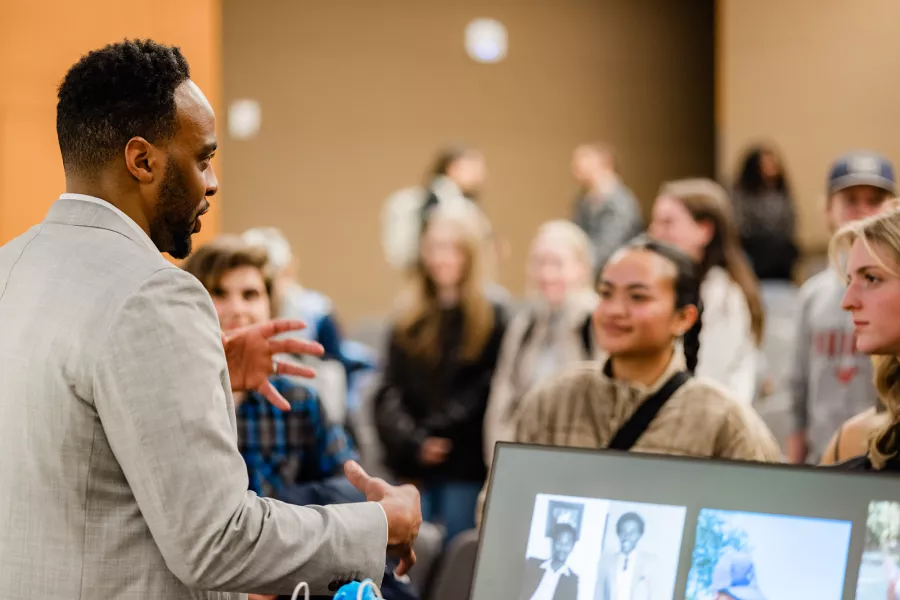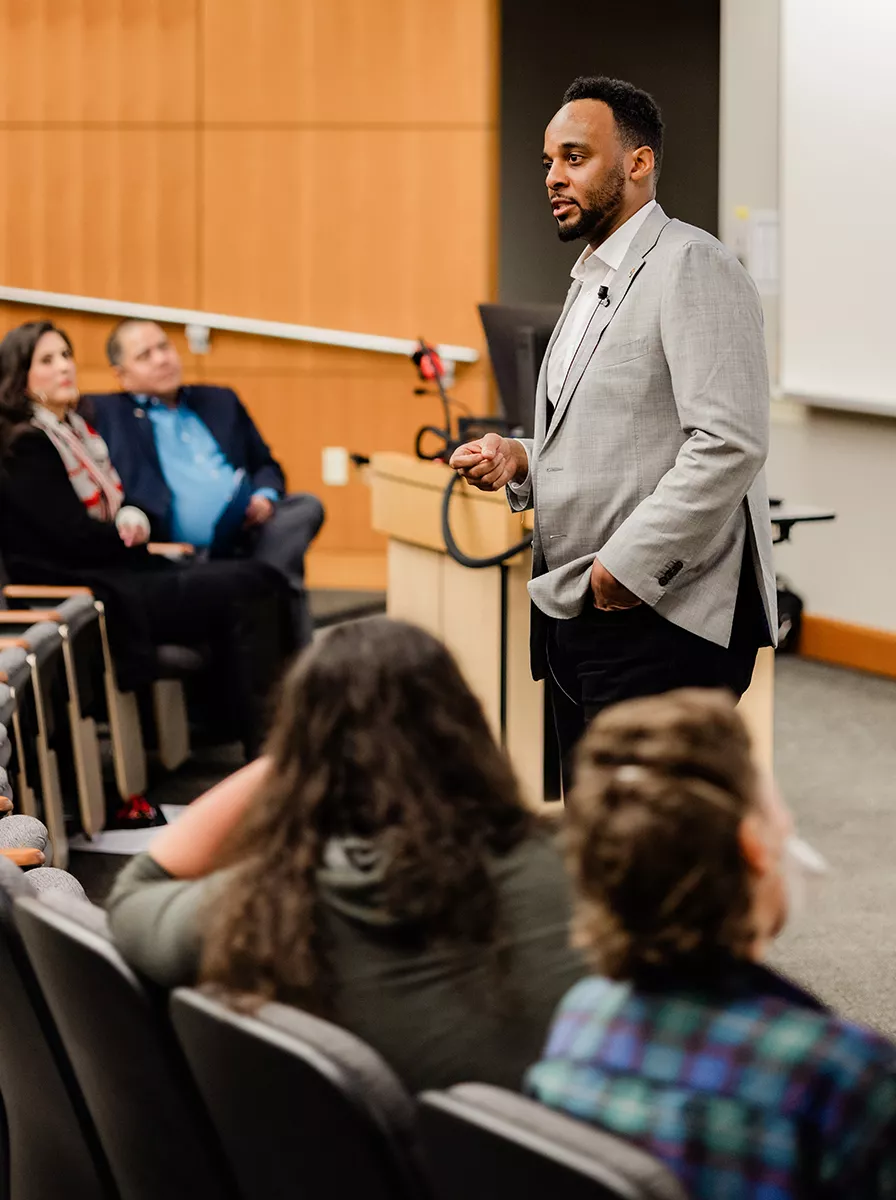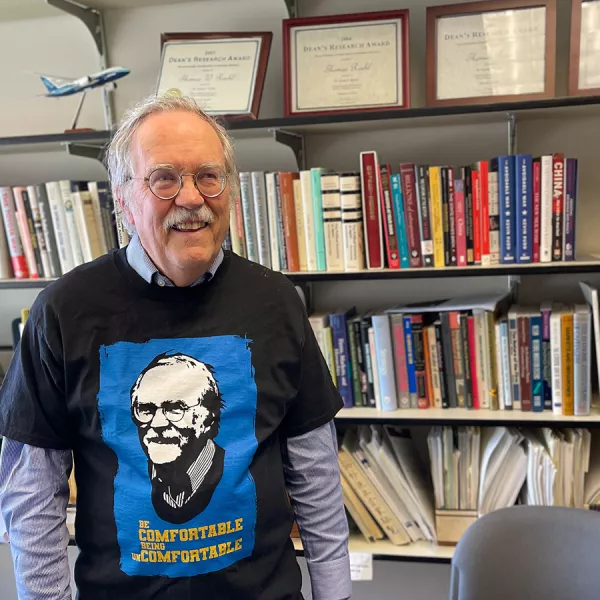William Jackson, B.A., ’10, and MiT, ’12, Washington’s secondary principal of the year, says he got his start as a professional educator thanks to the nurturing network that surrounded him at Western.
From Education Professor Kristen French, ’94, B.A., who first asked Jackson if he’d channel his interest in social justice into becoming a teacher, to Education Professor Bruce Larson, who assured Jackson his passion for education would matter more than his test scores in getting into Woodring’s master’s in teaching program, caring connections built the foundation of Jackson’s career.
“It was just people caring and stepping out with support. And that’s what I learned in my first entry to becoming an educator,” said Jackson in a talk this month sponsored by Woodring College of Education and the Foundation for WWU & Alumni.
Later in his career, as Jackson earned a doctorate in education from the University of Washington, he studied how nurturing relationships and communities for students of color are powerful weapons in dismantling oppression in schools.
Now the principal of Nathan Hale High School in Seattle, Jackson is the 2024 Association of Washington School Principals Secondary Principal of the year and in the running for national principal of the year. He recently visited campus and spoke about leadership for justice in schools, particularly for Black and Brown students.





